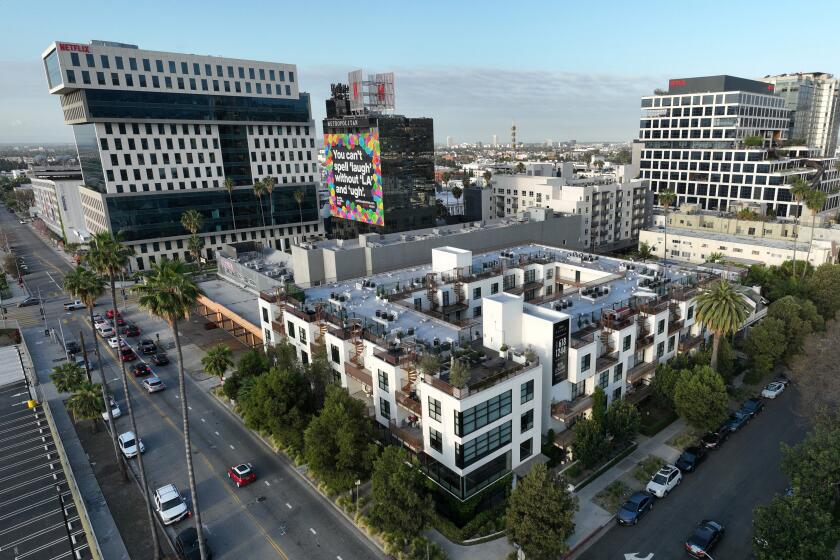Low-Cost Housing : Zarian Seeks Partnership With Builders
- Share via
A Glendale city councilman has asked members of the construction industry to assist the city in building low-cost housing by providing materials and services at cost.
Councilman Larry Zarian discussed the idea Friday with about 20 business representatives, including architects, electricians, bankers and developers, all of whom said they support the proposal.
Glendale is planning for low-cost housing because a new state law requires cities to spend a portion of their property tax revenue from redevelopment projects on housing for low-income families and senior citizens.
By forgoing their profits, construction-related businesses could make city funds go farther, enabling the city to provide more housing, Zarian said.
Private sector help could also allow the city to build without using federal money, freeing the city to restrict the housing to Glendale residents only.
Federally subsidized housing, by contrast, must be open to all qualified applicants, regardless of place of residence.
“Every time the state and federal governments do something, there are strings attached,” Zarian said. “When the private sector is involved, there is streamlining and cost-effectiveness.”
The proposal drew praise from the industry representatives.
Glendale contractor Gary Tobian, who sent a representative to the meeting, said in an interview that Zarian’s suggestion is an “honorable way of going about providing that kind of housing” and said it is “very possible” that he and others in the construction business could provide services and materials at cost.
Glendale developer Don Platz said afterward that he thinks he “could put a team of people together and create a development where they donate their profits. I don’t think it would be difficult at all.”
Glendale will begin accumulating money for low-cost housing next year.
State redevelopment law requires all cities to begin setting aside 20% of property taxes from redevelopment projects for construction of low-cost housing, Redevelopment Director Susan Shick said. By 1996, cities must adopt plans for providing the housing or risk losing the funds to the state.
$16 Million Expected
Glendale should have more than $16 million available for low-cost residences by 1996, said John Nagahiro, assistant finance director.
Zarian said he is seeking assistance from private businesses to increase the amount of such housing in Glendale.
Already, Zarian said, the city has designated for senior housing a 7,500-square-foot parcel at 605 E. Palmer Ave. that Glendale bought in 1980.
The city hopes to buy an adjoining 7,500-square-foot lot, said Jess Duran, an assistant for the Community Development Department.
Up to 18 units could be built on the two lots, Duran said.
Any such housing would be operated by a nonprofit organization of the city’s choice, Duran said.
It is unclear what could happen if Glendale does not provide the housing. Zarian said the state may adopt a law giving it the authority to confiscate the housing money if the city fails to use it.
Need Cited
“It’s possible that it can be lost to another agency,” Zarian said. “Why should we lose millions of dollars? We need senior citizen and family housing.”
Glendale has 508 federally subsidized apartments for low-income families and 575 for people 62 and older, Duran said.
Another federally subsidized senior citizen complex was recently proposed by the Soroptomist of Glendale and Southern California Presbyterian Homes.
The 75-unit project would be built on a vacant city lot on the northeast corner of Monterey Road and Louise Street, with U.S. Department of Housing and Urban Development funds. A decision by HUD on that project is expected by Sept. 30, Duran said.
More to Read
Sign up for Essential California
The most important California stories and recommendations in your inbox every morning.
You may occasionally receive promotional content from the Los Angeles Times.





